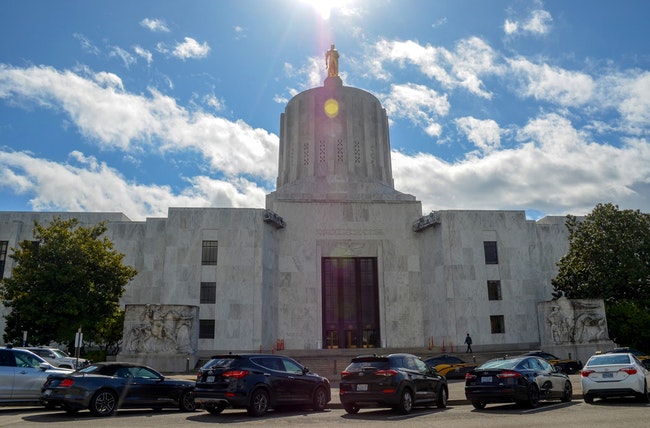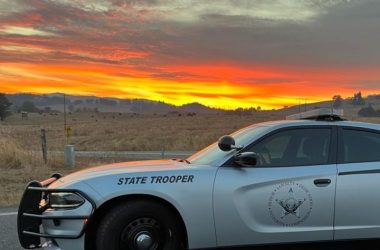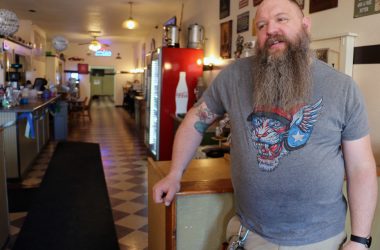
SALEM – Twitter and Facebook are taking steps to stop the spread of misinformation about Oregon’s elections system, after Republican Secretary of State Bev Clarno’s administration alerted the social media companies to what she said were falsehoods being shared on their platforms.
Oregon election officials, from county clerks to the secretary of state, hear complaints from voters during every primary election, because some people who receive nonpartisan ballots believed they registered as Democrats or Republicans.
This year, those frustrations were amplified when a Facebook group called “My party was changed Oregon” and the Oregon Republican Party launched an effort to gather first-hand accounts from voters who say their party affiliation was changed without their consent. They shared some of those accounts with the re-election campaign of President Donald Trump, who has attacked vote-by-mail in recent weeks and on Tuesday received his first Twitter fact-check warning in response to his remarks on voting.
Starting in April, some voters who said they are lifelong Democrats contacted The Oregonian/OregonLive to say they were upset to receive non-partisan ballots. Most of them turned out to be infrequent voters who had been registered as non-partisan voters for years and had not voted in recent primaries, public records showed.
Then on May 18, the website Gateway Pundit which Facebook says is “known for publishing falsehoods and spreading hoaxes” published an unverified claim that Oregon officials changed hundreds of Republicans’ ballots to nonpartisan.
After Clarno’s administration contacted the social media companies, Facebook tagged the post as “partly false” and began referring people to fact checks on it by the websites PolitiFact, run by the journalism nonprofit Poynter Institute, and Lead Stories, which is a project of the nonpartisan Rand Corporation think tank. Twitter suspended the “My party changed” account on Friday.
In the wake of last week’s primary, “Elections officials highlighted social media activity that was occurring on their platform that was false,” wrote Andrea Chiapella, legislative and communications director for the secretary of state, in an email. “They looked into it and their third-party fact checkers deemed it partly false.”
That has not deterred people involved with the Oregon group. Nicole Chaisson, founder of the Facebook group “My party was changed Oregon,” announced online Tuesday that she was preparing to launch paid Facebook ads to solicit more such stories.
In an interview with The Oregonian/OregonLive on Wednesday, Chaisson said she stopped the process and deleted the ads while they were still going through Facebook’s review process because she wants to re-work the ads to make them clearer. Chaisson would not say who was going to pay for the ads, describing them only as “people affected themselves” by party registration changes.
Chaisson, who lives outside The Dalles, said she started the Facebook group in early May after a friend who wanted to vote in the 2nd Congressional District primary found out she could not do so because she was registered as a nonaffiliated voter. Chaisson, a registered Republican, was not personally affected.
“We started a Twitter page because we started seeing we were getting fact checked on Facebook,” Chaisson said. “And it got suspended within a couple days … We rely on social media to tell our story.”
She announced Friday afternoon on Facebook that someone from the Trump campaign tasked with “elections security” reached out to her group, although Chaisson told The Oregonian/OregonLive that the campaign staffer said Trump is “more worried about the general (election).”
Oregon is one of nine states with closed primaries, which means voters must be registered with a party to participate in its primary.
Since Oregon’s automatic voter registration law took effect in 2016, the number of unaffiliated voters has skyrocketed because people who were not previously registered are automatically signed up as non-affiliated when they get or renew a drivers license or state ID card. Elections officials send out postcards asking those voters if they want to pick a party.
All voters see the nominees from both major parties during the November general election. So those who don’t vote in primaries can think they are registered with the party they in fact identify with.
In addition to taking to social media, Chaisson is sending voters’ reports to Rep. Mike Nearman, a Republican from Independence who said he will look into the issue.
Ironically, the situation has pitted Chaisson and national conservative websites against the only Republican to currently occupy a statewide office in Oregon. Clarno is serving the remainder of Dennis Richardson’s term as secretary of state, and voters will decide in November between Republican Sen. Kim Thatcher of Keizer or Democratic Sen. Shemia Fagan of the Portland area.
Chaisson said it bothers her that Clarno’s administration has described voters’ complaints, in Chaisson’s words, as something that “happens every two years and these people are just misinformed.” She claimed that the secretary of state’s office paid the fact checkers that Facebook and Twitter referenced, then explained she’d inferred that from a statement by a member of Clarno’s administration that the secretary of state was working with fact-checkers.
Chiapella, the communications director, explained on Wednesday that was simply a reference to the secretary of state’s staff responding to questions from fact checkers.
“We didn’t pay anyone to discredit this group or anyone else for that matter,” Chiapella wrote in an email. “The fact checker reached out to me and asked me questions about the situation, much like you or any other reporter has done.”
This story is published as part of a collaborative of Oregon media outlets who are sharing coverage related to the global pandemic. The Enterprise is part of the collaborative.




